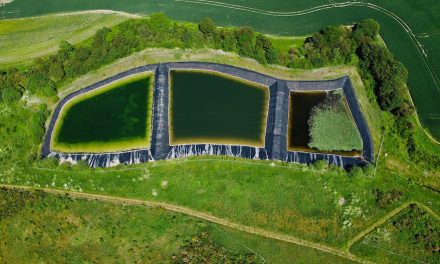Table of Contents
“Unlock Your Future: Explore the Top 10 Lucrative Careers for Environmental Science Graduates!”
Introduction
Environmental science graduates have a wealth of opportunities in various sectors, driven by the increasing global focus on sustainability and environmental protection. As industries seek to address climate change, resource management, and ecological conservation, the demand for skilled professionals in this field continues to rise. This introduction explores the top 10 lucrative careers available to environmental science graduates, highlighting roles that not only offer competitive salaries but also contribute to the well-being of the planet and society. From environmental consulting to renewable energy management, these careers provide a pathway for graduates to make a meaningful impact while enjoying rewarding professional growth.
Environmental Consultant
Environmental consultants play a pivotal role in addressing the complex challenges posed by environmental issues, making this career path particularly appealing for graduates in environmental science. As the world grapples with climate change, pollution, and biodiversity loss, the demand for professionals who can provide expert advice on environmental management and sustainability is on the rise. Environmental consultants are tasked with assessing the environmental impact of various projects, ensuring compliance with regulations, and helping organizations implement sustainable practices. This multifaceted role requires a blend of scientific knowledge, analytical skills, and effective communication.
One of the primary responsibilities of an environmental consultant is to conduct thorough assessments of sites to evaluate potential environmental risks. This often involves fieldwork, where consultants collect samples of soil, water, and air to analyze for contaminants. By employing various scientific methodologies, they can identify pollution sources and recommend remediation strategies. This aspect of the job not only requires a solid understanding of environmental science but also the ability to interpret complex data and present findings in a clear and concise manner. Consequently, strong analytical skills are essential for success in this field.
Moreover, environmental consultants must stay abreast of the ever-evolving regulatory landscape. Governments and international bodies frequently update environmental laws and standards, which means that consultants must be well-versed in these regulations to guide their clients effectively. This aspect of the job underscores the importance of continuous learning and professional development. Many consultants pursue additional certifications or training to enhance their expertise, which can further increase their marketability and earning potential.
In addition to technical skills, effective communication is crucial for environmental consultants. They often serve as liaisons between clients, regulatory agencies, and the public. This requires the ability to convey complex scientific concepts in a manner that is accessible to non-experts. Whether preparing detailed reports, delivering presentations, or engaging in public consultations, strong verbal and written communication skills are indispensable. Furthermore, consultants must be adept at negotiating and advocating for their clients’ interests while ensuring compliance with environmental standards.
The career trajectory for environmental consultants can be quite promising. Many start their careers in entry-level positions, gaining valuable experience and building a professional network. As they accumulate expertise, they may advance to senior consultant roles or even managerial positions within consulting firms. Additionally, some environmental consultants choose to specialize in specific areas, such as ecological restoration, waste management, or renewable energy, which can lead to even greater opportunities and higher salaries.
The financial rewards associated with a career in environmental consulting are also noteworthy. According to industry reports, the average salary for environmental consultants can vary significantly based on experience, location, and specialization. However, it is not uncommon for seasoned professionals to earn six-figure salaries, particularly in regions with a high demand for environmental services. This financial incentive, combined with the opportunity to make a meaningful impact on environmental sustainability, makes this career path particularly attractive for graduates in environmental science.
In conclusion, environmental consulting offers a dynamic and rewarding career for those passionate about addressing environmental challenges. With a strong foundation in scientific principles, a commitment to ongoing learning, and the ability to communicate effectively, environmental science graduates can thrive in this field. As the global focus on sustainability continues to grow, the role of environmental consultants will undoubtedly become even more critical, ensuring that future generations inherit a healthier planet.
Sustainability Manager
As the world increasingly recognizes the importance of sustainable practices, the role of a Sustainability Manager has emerged as a pivotal career for graduates in environmental science. This position is not only vital for organizations aiming to reduce their ecological footprint but also offers a rewarding pathway for those passionate about environmental stewardship. Sustainability Managers are responsible for developing, implementing, and overseeing strategies that promote sustainable practices within an organization. This multifaceted role requires a blend of scientific knowledge, strategic thinking, and strong communication skills.
To begin with, Sustainability Managers assess an organization’s current environmental impact, identifying areas where improvements can be made. This often involves conducting audits and analyzing data related to energy consumption, waste management, and resource utilization. By understanding the baseline environmental performance, these professionals can set measurable goals and benchmarks that align with both regulatory requirements and corporate social responsibility initiatives. Consequently, they play a crucial role in guiding organizations toward compliance with environmental laws and regulations, which is increasingly important in today’s regulatory landscape.
Moreover, the role extends beyond mere compliance; it encompasses the development of innovative solutions that can lead to significant cost savings and operational efficiencies. For instance, a Sustainability Manager might spearhead initiatives to reduce energy consumption through the implementation of renewable energy sources or energy-efficient technologies. By doing so, they not only contribute to environmental conservation but also enhance the organization’s bottom line. This dual focus on sustainability and profitability is a key aspect of the role, making it particularly appealing to businesses that are looking to improve their public image while also achieving financial success.
In addition to technical skills, effective communication is essential for a Sustainability Manager. They must engage with various stakeholders, including employees, management, and external partners, to foster a culture of sustainability within the organization. This often involves conducting training sessions, workshops, and awareness campaigns to educate staff about sustainable practices and their importance. By cultivating a shared understanding of sustainability goals, these managers can inspire collective action and ensure that sustainability becomes an integral part of the organizational culture.
Furthermore, the role of a Sustainability Manager is increasingly strategic, as they are often involved in long-term planning and decision-making processes. They collaborate with other departments, such as marketing, finance, and operations, to integrate sustainability into the core business strategy. This holistic approach not only enhances the organization’s sustainability profile but also positions it as a leader in corporate responsibility, which can be a significant competitive advantage in today’s market.
As the demand for sustainability expertise continues to grow, the career prospects for Sustainability Managers are promising. Organizations across various sectors, including corporate, non-profit, and governmental, are seeking professionals who can navigate the complexities of sustainability challenges. This trend is further fueled by the increasing consumer demand for environmentally responsible products and services, which compels businesses to prioritize sustainability in their operations.
In conclusion, a career as a Sustainability Manager offers environmental science graduates a unique opportunity to make a meaningful impact while advancing their professional aspirations. By combining scientific knowledge with strategic and communication skills, these professionals are at the forefront of driving sustainable change within organizations. As the global focus on sustainability intensifies, the role of Sustainability Manager will undoubtedly continue to evolve, presenting exciting opportunities for those committed to fostering a more sustainable future.
Wildlife Biologist
Wildlife biologists play a crucial role in understanding and conserving the diverse ecosystems that sustain life on Earth. As environmental science graduates consider their career paths, the position of a wildlife biologist stands out as both rewarding and impactful. This profession involves studying animals in their natural habitats, assessing their behaviors, populations, and interactions with the environment. By conducting field research, wildlife biologists gather essential data that informs conservation strategies and wildlife management practices.
One of the primary responsibilities of a wildlife biologist is to monitor animal populations and their habitats. This often requires extensive fieldwork, where biologists may spend long hours observing wildlife, collecting samples, and recording data. Such hands-on experience is invaluable, as it allows them to identify trends in population dynamics and assess the health of various species. For instance, by tracking migratory patterns or breeding behaviors, wildlife biologists can provide insights into how environmental changes, such as climate change or habitat destruction, impact wildlife.
Moreover, wildlife biologists often collaborate with other scientists, conservationists, and policymakers to develop effective management plans. This interdisciplinary approach is essential, as it combines ecological knowledge with social and economic considerations. For example, when developing a conservation strategy for an endangered species, wildlife biologists must consider not only the biological needs of the species but also the interests of local communities and stakeholders. This collaborative effort ensures that conservation initiatives are sustainable and beneficial for both wildlife and human populations.
In addition to fieldwork and collaboration, wildlife biologists are also responsible for educating the public about the importance of biodiversity and conservation. They may conduct workshops, give presentations, or write articles to raise awareness about the challenges facing wildlife and the steps that can be taken to protect them. This educational aspect of the job is vital, as it fosters a greater understanding of ecological issues and encourages community involvement in conservation efforts. By engaging with the public, wildlife biologists can inspire future generations to appreciate and protect the natural world.
Furthermore, the demand for wildlife biologists is expected to grow as environmental concerns become increasingly pressing. With habitat loss, climate change, and pollution threatening ecosystems worldwide, the expertise of wildlife biologists will be essential in developing strategies to mitigate these challenges. As a result, graduates in environmental science who pursue careers in wildlife biology can expect a dynamic and evolving job market, with opportunities in government agencies, non-profit organizations, and research institutions.
In terms of educational requirements, a bachelor’s degree in environmental science or a related field is typically the minimum requirement for entry-level positions. However, many wildlife biologists hold advanced degrees, which can enhance their job prospects and allow them to specialize in specific areas of research. Graduate programs often provide opportunities for hands-on experience through internships or research projects, further preparing students for the demands of the field.
In conclusion, a career as a wildlife biologist offers environmental science graduates a unique opportunity to make a meaningful impact on the planet. By studying and protecting wildlife, these professionals contribute to the preservation of biodiversity and the health of ecosystems. As the world faces increasing environmental challenges, the role of wildlife biologists will be more critical than ever, making this a lucrative and fulfilling career choice for those passionate about the environment.
Environmental Scientist

Environmental scientists play a crucial role in addressing some of the most pressing challenges facing our planet today. As stewards of the environment, they apply their knowledge of natural sciences to protect ecosystems, manage natural resources, and develop sustainable practices. This multifaceted profession encompasses a wide range of responsibilities, from conducting field studies and collecting data to analyzing environmental impacts and formulating policies. The demand for environmental scientists has surged in recent years, driven by increasing awareness of climate change, pollution, and biodiversity loss. Consequently, this career path offers not only job security but also the opportunity to make a meaningful difference in the world.
One of the primary responsibilities of an environmental scientist is to assess the health of ecosystems. This often involves conducting field research, which may include sampling soil, water, and air to identify pollutants and other harmful substances. By analyzing this data, environmental scientists can determine the extent of contamination and its potential effects on human health and wildlife. Furthermore, they often collaborate with government agencies, non-profit organizations, and private companies to develop strategies for remediation and restoration. This collaborative approach is essential, as it ensures that diverse perspectives are considered when addressing environmental issues.
In addition to fieldwork, environmental scientists are also tasked with interpreting complex data and communicating their findings to various stakeholders. This aspect of the job requires strong analytical skills and the ability to convey technical information in a clear and accessible manner. Environmental scientists often prepare reports, presentations, and policy recommendations that inform decision-makers and the public about environmental risks and best practices. As such, effective communication is a vital skill for those in this profession, as it helps bridge the gap between scientific research and practical application.
Moreover, environmental scientists frequently engage in policy development and advocacy. They work closely with lawmakers and regulatory agencies to create and implement environmental regulations that protect natural resources and public health. This involvement in policy-making not only enhances their understanding of the legal framework surrounding environmental issues but also empowers them to influence change at a systemic level. By advocating for sustainable practices and responsible resource management, environmental scientists contribute to the creation of a more sustainable future.
The career prospects for environmental scientists are promising, with job opportunities expected to grow significantly in the coming years. As industries increasingly recognize the importance of sustainability, the demand for professionals who can navigate the complexities of environmental regulations and develop innovative solutions will continue to rise. Additionally, environmental scientists can find employment in various sectors, including government agencies, non-profit organizations, consulting firms, and private industry. This diversity of opportunities allows graduates to tailor their careers to align with their interests and values.
Furthermore, the interdisciplinary nature of environmental science means that graduates can leverage their expertise in various fields, such as biology, chemistry, geology, and social sciences. This versatility not only enhances their employability but also enriches their understanding of the interconnectedness of environmental issues. As they navigate their careers, environmental scientists can specialize in areas such as climate change, water resources, or waste management, allowing them to focus on the issues they are most passionate about.
In conclusion, a career as an environmental scientist offers a unique blend of scientific inquiry, policy advocacy, and practical application. With the growing emphasis on sustainability and environmental protection, this profession is not only lucrative but also vital for the health of our planet. As environmental scientists continue to address the challenges posed by climate change and resource depletion, they play an indispensable role in shaping a sustainable future for generations to come.
Conservation Scientist
Conservation scientists play a pivotal role in the stewardship of natural resources, making them an essential career choice for graduates in environmental science. As the world grapples with the consequences of climate change, habitat destruction, and biodiversity loss, the demand for professionals who can manage and protect our natural environments has never been more pressing. Conservation scientists are tasked with the responsibility of ensuring that ecosystems remain healthy and sustainable, which involves a blend of fieldwork, research, and policy advocacy.
One of the primary responsibilities of conservation scientists is to conduct research that informs conservation strategies. This research often involves studying ecosystems, wildlife populations, and the impacts of human activities on the environment. By collecting and analyzing data, these professionals can identify trends and develop evidence-based recommendations for conservation practices. For instance, they may assess the health of a forest ecosystem, evaluate the effects of pollution on aquatic habitats, or monitor endangered species to determine the effectiveness of recovery efforts. This scientific approach is crucial for developing strategies that not only protect biodiversity but also promote sustainable land use.
In addition to research, conservation scientists frequently engage in the management of natural resources. This aspect of their work involves developing and implementing conservation plans that balance ecological health with human needs. For example, they may work with landowners, government agencies, and non-profit organizations to create sustainable land management practices that protect habitats while allowing for agricultural or recreational use. This collaborative approach is essential, as it fosters partnerships that can lead to more effective conservation outcomes. By bridging the gap between science and policy, conservation scientists help ensure that environmental considerations are integrated into decision-making processes.
Moreover, conservation scientists often serve as educators and advocates for environmental stewardship. They may conduct workshops, lead community outreach programs, or collaborate with schools to raise awareness about conservation issues. By engaging the public and fostering a sense of responsibility towards the environment, they can inspire individuals and communities to take action in support of conservation efforts. This educational role is particularly important in an era where misinformation about environmental issues can hinder progress. By providing accurate information and practical solutions, conservation scientists empower others to contribute to the protection of natural resources.
As the field of conservation science continues to evolve, professionals in this area must also stay abreast of emerging technologies and methodologies. Innovations such as remote sensing, geographic information systems (GIS), and environmental modeling are increasingly being utilized to enhance conservation efforts. By leveraging these tools, conservation scientists can improve their ability to monitor ecosystems, assess threats, and evaluate the effectiveness of conservation strategies. This adaptability is crucial in a rapidly changing world, where new challenges and opportunities arise regularly.
In conclusion, a career as a conservation scientist offers environmental science graduates a fulfilling path that combines research, management, education, and advocacy. With the growing urgency of environmental issues, the role of conservation scientists is more critical than ever. They not only contribute to the preservation of our planet’s natural resources but also play a vital part in shaping a sustainable future. As they navigate the complexities of ecological management and engage with diverse stakeholders, conservation scientists exemplify the intersection of science and social responsibility, making a lasting impact on both the environment and society.
Environmental Policy Analyst
Environmental Policy Analysts play a crucial role in shaping the policies that govern our interaction with the natural world. As the global community increasingly recognizes the importance of sustainable practices, the demand for professionals who can navigate the complexities of environmental legislation and policy development has surged. These analysts are tasked with evaluating existing policies, proposing new regulations, and ensuring that environmental considerations are integrated into governmental and corporate decision-making processes.
To begin with, the primary responsibility of an Environmental Policy Analyst is to conduct thorough research on environmental issues, which often involves analyzing data related to air and water quality, land use, and biodiversity. This research is essential for understanding the implications of various policies and for providing evidence-based recommendations. By synthesizing scientific data with socio-economic factors, these analysts can assess the potential impacts of proposed legislation on both the environment and public health. Consequently, their work is instrumental in advocating for policies that promote sustainability and mitigate environmental degradation.
Moreover, Environmental Policy Analysts often collaborate with a diverse range of stakeholders, including government agencies, non-profit organizations, and private sector entities. This collaboration is vital, as it allows analysts to gather insights from various perspectives and to build consensus around environmental initiatives. For instance, when developing a new policy aimed at reducing carbon emissions, an analyst might engage with industry representatives to understand the economic implications while also consulting with environmental groups to ensure that ecological concerns are adequately addressed. This multifaceted approach not only enriches the policy-making process but also enhances the likelihood of successful implementation.
In addition to research and collaboration, effective communication skills are paramount for Environmental Policy Analysts. They must be able to articulate complex scientific concepts in a manner that is accessible to policymakers and the general public. This often involves preparing reports, policy briefs, and presentations that distill intricate data into actionable insights. Furthermore, analysts may also participate in public forums and discussions, where they advocate for specific policies and engage with community members to raise awareness about environmental issues. Thus, their ability to convey information clearly and persuasively is essential for fostering public support and driving policy change.
As the field of environmental policy continues to evolve, analysts must stay abreast of emerging trends and technologies. This includes understanding the implications of climate change, advancements in renewable energy, and the latest scientific research on environmental health. By remaining informed, Environmental Policy Analysts can anticipate future challenges and opportunities, positioning themselves as thought leaders in the field. This proactive approach not only enhances their professional credibility but also ensures that they can contribute meaningfully to the development of innovative solutions to pressing environmental issues.
In conclusion, a career as an Environmental Policy Analyst offers a unique opportunity to influence the future of environmental governance. With a blend of research, collaboration, and communication, these professionals are at the forefront of efforts to create sustainable policies that protect our planet. As society grapples with the challenges posed by climate change and resource depletion, the role of Environmental Policy Analysts will only become more critical. For graduates in environmental science, pursuing a career in this field not only promises personal fulfillment but also the chance to make a significant impact on the world.
Renewable Energy Specialist
As the world increasingly recognizes the urgent need to transition to sustainable energy sources, the role of a Renewable Energy Specialist has emerged as a pivotal career path for graduates in environmental science. This profession not only addresses the pressing challenges of climate change but also capitalizes on the growing demand for clean energy solutions. Renewable Energy Specialists are tasked with the critical responsibility of researching, developing, and implementing technologies that harness energy from renewable sources such as solar, wind, hydro, and geothermal.
To begin with, the role of a Renewable Energy Specialist is multifaceted, encompassing a range of activities from project management to technical analysis. These professionals often collaborate with engineers, policymakers, and environmental scientists to design and optimize renewable energy systems. Their work is essential in ensuring that projects are not only technically feasible but also economically viable and environmentally sustainable. As such, a strong foundation in both scientific principles and practical applications is crucial for success in this field.
Moreover, the demand for Renewable Energy Specialists is on the rise, driven by global initiatives aimed at reducing carbon emissions and promoting sustainable practices. Governments and private sectors alike are investing heavily in renewable energy projects, creating a wealth of job opportunities for those equipped with the right skills and knowledge. This trend is further supported by international agreements, such as the Paris Agreement, which emphasize the need for countries to commit to reducing their reliance on fossil fuels. Consequently, graduates in environmental science who specialize in renewable energy are well-positioned to take advantage of this expanding job market.
In addition to technical expertise, effective communication skills are vital for Renewable Energy Specialists. They must be able to convey complex scientific concepts to a variety of stakeholders, including community members, business leaders, and government officials. This ability to bridge the gap between technical knowledge and public understanding is essential for garnering support for renewable energy initiatives. Furthermore, as these specialists often work on interdisciplinary teams, collaboration and teamwork are key components of their daily responsibilities.
Transitioning to the educational requirements, a degree in environmental science provides a solid foundation for aspiring Renewable Energy Specialists. However, further specialization through coursework in renewable energy technologies, energy policy, and environmental economics can enhance a graduate’s employability. Additionally, hands-on experience through internships or cooperative education programs can provide invaluable insights into the practical aspects of renewable energy projects. Such experiences not only bolster a resume but also help graduates build a professional network within the industry.
As the renewable energy sector continues to evolve, ongoing education and professional development will be essential for Renewable Energy Specialists. Staying abreast of technological advancements and regulatory changes will enable these professionals to remain competitive in the field. Furthermore, certifications from recognized organizations can enhance credibility and demonstrate a commitment to the profession.
In conclusion, the role of a Renewable Energy Specialist is not only lucrative but also integral to the global shift towards sustainable energy solutions. With a strong demand for skilled professionals in this area, environmental science graduates have a unique opportunity to contribute to meaningful change while building a rewarding career. As the world moves forward in its quest for sustainability, the expertise of Renewable Energy Specialists will undoubtedly play a crucial role in shaping a cleaner, greener future.
Environmental Educator
Environmental educators play a crucial role in fostering awareness and understanding of environmental issues among diverse audiences. As the world grapples with pressing challenges such as climate change, biodiversity loss, and pollution, the need for knowledgeable professionals who can effectively communicate these issues has never been more critical. Graduates in environmental science are uniquely positioned to take on this role, leveraging their academic background to inspire and educate others about sustainable practices and conservation efforts.
One of the primary responsibilities of an environmental educator is to develop and implement educational programs that engage various groups, including students, community members, and policymakers. These programs often encompass a wide range of topics, from the importance of recycling and waste reduction to the intricacies of ecosystems and the impact of human activities on the environment. By tailoring their content to suit different audiences, environmental educators can ensure that their messages resonate and lead to meaningful behavioral changes.
In addition to creating educational materials, environmental educators frequently conduct workshops, seminars, and field trips that provide hands-on learning experiences. These interactive sessions not only enhance understanding but also foster a sense of connection to the natural world. For instance, a field trip to a local wetland can help participants appreciate the importance of wetlands in maintaining biodiversity and water quality. Such experiences are invaluable, as they allow individuals to witness firsthand the beauty and complexity of ecosystems, thereby deepening their commitment to environmental stewardship.
Moreover, environmental educators often collaborate with schools, non-profit organizations, and government agencies to promote sustainability initiatives. This collaboration can take many forms, such as developing curricula that incorporate environmental science concepts or organizing community clean-up events. By working together with various stakeholders, environmental educators can amplify their impact and reach a broader audience, ultimately contributing to a more informed and engaged public.
The demand for environmental educators is on the rise, driven by an increasing recognition of the importance of environmental literacy in today’s society. As educational institutions and organizations prioritize sustainability, they seek professionals who can effectively convey complex scientific concepts in an accessible manner. This trend presents a wealth of opportunities for environmental science graduates, who can find positions in schools, nature centers, museums, and non-profit organizations dedicated to environmental advocacy.
Furthermore, the role of an environmental educator is not limited to formal educational settings. Many professionals in this field engage in public outreach through social media, blogs, and community events, utilizing various platforms to spread awareness and encourage action. This versatility allows environmental educators to reach a diverse audience, from young children to adults, fostering a culture of environmental responsibility across generations.
In conclusion, pursuing a career as an environmental educator offers a fulfilling path for graduates of environmental science. By combining their knowledge of ecological principles with effective communication strategies, these professionals can inspire others to take action in addressing environmental challenges. As society continues to confront pressing ecological issues, the role of environmental educators will remain vital in shaping a more sustainable future. With their ability to inform, engage, and empower individuals, environmental educators are not only advocates for the planet but also catalysts for change, making a lasting impact on communities and the environment alike.
Water Resource Manager
Water Resource Managers play a crucial role in the sustainable management of water resources, a task that has become increasingly vital in the face of climate change, population growth, and urbanization. As stewards of one of the planet’s most precious resources, these professionals are tasked with ensuring that water is available for various uses, including drinking, agriculture, industry, and recreation, while also protecting ecosystems and maintaining water quality. The complexity of their responsibilities requires a deep understanding of hydrology, environmental science, and policy, making this career particularly appealing to graduates in the field.
One of the primary responsibilities of a Water Resource Manager is to develop and implement water management plans that balance the needs of different stakeholders. This often involves collaborating with government agencies, local communities, and private organizations to create strategies that promote sustainable water use. For instance, they may work on projects that aim to reduce water waste, improve irrigation efficiency in agriculture, or restore wetlands to enhance natural water filtration processes. By fostering collaboration among diverse groups, Water Resource Managers can help ensure that water resources are used efficiently and equitably.
In addition to planning and collaboration, Water Resource Managers are also involved in monitoring and assessing water quality and availability. This aspect of their work often requires the use of advanced technology and data analysis techniques. For example, they may utilize Geographic Information Systems (GIS) to map water resources and analyze trends over time. By interpreting data on water usage, precipitation patterns, and pollution levels, these professionals can make informed decisions that guide policy and management practices. This analytical component not only enhances their effectiveness but also positions them as key players in addressing pressing environmental challenges.
Moreover, Water Resource Managers must stay abreast of regulatory frameworks and environmental laws that govern water use. This knowledge is essential for ensuring compliance with local, state, and federal regulations, as well as for advocating for policies that promote sustainable practices. As water scarcity becomes a more pressing issue globally, the demand for knowledgeable professionals who can navigate the complexities of water law and policy is likely to grow. Consequently, graduates with a background in environmental science are well-equipped to fill this need, as their education provides a solid foundation in both scientific principles and regulatory frameworks.
Furthermore, the role of Water Resource Managers is becoming increasingly interdisciplinary. They often collaborate with ecologists, urban planners, and engineers to develop comprehensive solutions to water-related issues. This collaborative approach not only enriches their work but also enhances their ability to address multifaceted challenges such as drought, flooding, and water pollution. As such, graduates who possess strong communication and teamwork skills will find themselves particularly well-suited for this career path.
In conclusion, the role of a Water Resource Manager is both dynamic and essential in today’s world. With the increasing pressures on water resources due to climate change and human activity, the need for skilled professionals in this field is more critical than ever. Environmental science graduates who pursue careers in water resource management can expect to engage in meaningful work that not only addresses immediate water challenges but also contributes to the long-term sustainability of our planet’s water resources. As they navigate the complexities of water management, these professionals will play a pivotal role in shaping a more sustainable future for generations to come.
Q&A
1. **What is a common career path for environmental science graduates?**
Environmental Consultant.
2. **What role involves assessing environmental impact for projects?**
Environmental Impact Assessor.
3. **Which career focuses on wildlife conservation and management?**
Wildlife Biologist.
4. **What position is responsible for developing sustainable practices in businesses?**
Sustainability Manager.
5. **Which job involves analyzing data related to environmental conditions?**
Environmental Scientist.
6. **What role focuses on policy development related to environmental issues?**
Environmental Policy Analyst.
7. **Which career involves educating the public about environmental issues?**
Environmental Educator.
8. **What position is responsible for managing natural resources?**
Natural Resource Manager.
9. **Which job focuses on renewable energy solutions and technologies?**
Renewable Energy Specialist.
Conclusion
In conclusion, the top 10 lucrative careers for environmental science graduates encompass a diverse range of opportunities, including roles such as environmental consultants, sustainability managers, and conservation scientists. These positions not only offer competitive salaries but also allow professionals to make a significant impact on environmental protection and sustainability. As global awareness of environmental issues continues to grow, the demand for skilled graduates in this field is expected to rise, making it a promising career choice for those passionate about the environment.





